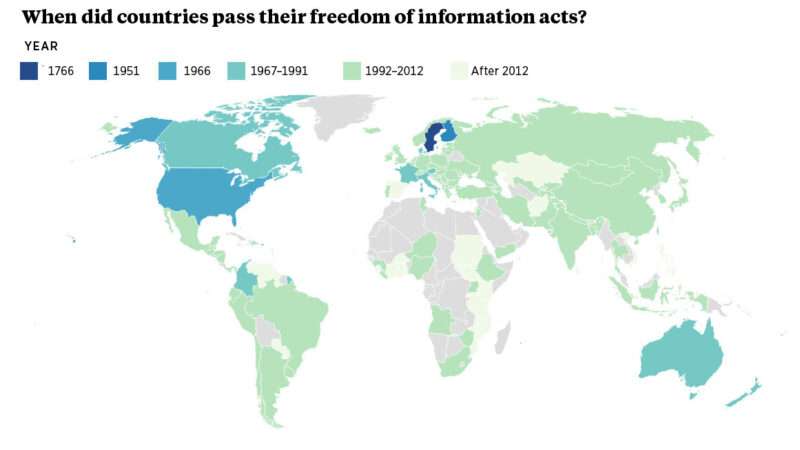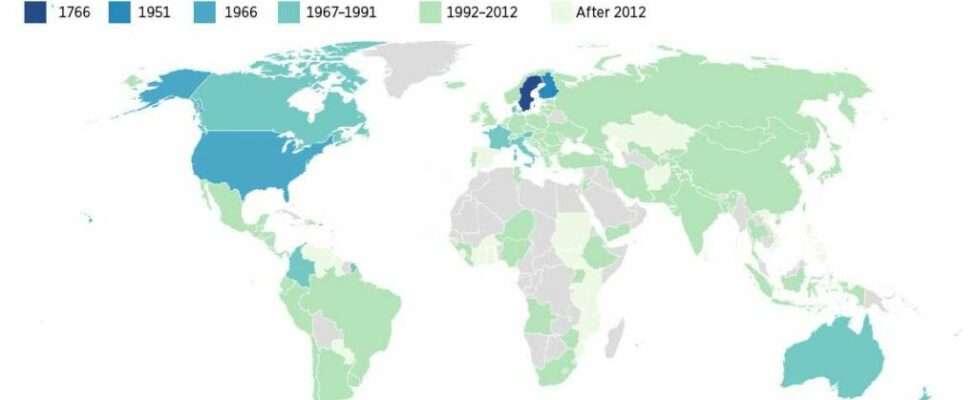How FOIA Gave Rise to Government Transparency Laws Around the World

It’s well-known that the government heavily censors documents before declassifying them—something humorously captured by The Onion in 2005 with the headline, “CIA Realizes It’s Been Using Black Highlighters All These Years.” But from a glass-half-full perspective, it’s incredible that the U.S. government shares information with the public at all. The original Freedom of Information Act (FOIA) of 1966—the law under which many of those redacted documents are obtained—was the “product of years of slow campaigning by a network of journalists, scientists, and politicians seeking to make the government more transparent,” the historian Sam Lebovic writes in State of Silence: The Espionage Act and the Rise of America’s Secrecy Regime. FOIA was later strengthened in the wake of the Watergate scandals in the 1970s.
The efforts of those American activists opened the floodgates around the world. Out of 195 countries, 121 now have freedom of information or government transparency laws, according to FreedomInfo, a website run by George Washington University’s National Security Archive and Article19, a British free speech nonprofit. All but two of those countries adopted their laws after America’s FOIA reforms, and the vast majority came after the Cold War ended.
Only Scandinavia was ahead of the curve. Sweden’s Press Act of 1766, one of the world’s first free expression laws, also required authorities to open up public records. Nearly two centuries later, in 1951, neighboring Finland passed the Publicity of Official Documents Act, which was “somewhat more limited than the Swedish model,” according to a U.S. Department of Justice report.
There’s a difference between freedom of information in theory and in practice. France passed a freedom of information law in 1978, but “the law has so many exceptions that it is totally ineffective. Almost everything is classified ‘confidential defense’ and when a document mentions an identity, it is rendered inaccessible,” French journalist Paul Moreira has complained. He now leads a campaign to make France’s law more like America’s FOIA.
Meanwhile, China has made a “steady pivot away from earlier tolerance of (and even active support for) more transparent access to information” a decade ago to treating “data on even relatively mundane government or social trends” as “sensitive,” according to the Council on Foreign Relations.
Still, it speaks to the power of the U.S. model that everyone feels the need to at least pretend to respect freedom of information. We have American activists and the U.S. Congress to thank for that.
The post How FOIA Gave Rise to Government Transparency Laws Around the World appeared first on Reason.com.
